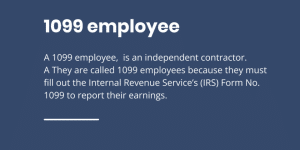Updated November 20, 2025
Understanding California Labor Code 1198
California Labor Code Section 1198 is a crucial regulation that governs the working hours and conditions for employees in the state. This law is designed to protect workers from excessive hours and substandard working conditions, ensuring that they are treated fairly and with respect in their workplaces. In this article, we will explore the key aspects of California Labor Code 1198, its implications for both employees and employers, and how it fits into the broader framework of labor laws in California.
California Labor Code 1198 establishes the maximum hours that employees can work and the standard conditions under which they must be employed. The law states that:
"The maximum hours of work and the standard conditions fixed by the commission shall be the maximum hours of work and the standard conditions of labor for employees. The employment of any employee for longer hours than those fixed by the order or under conditions of labor prohibited by the order is unlawful."
This means that employers are legally obligated to adhere to the maximum working hours set forth by the California Division of Labor Standards Enforcement (DLSE). If an employer requires an employee to work beyond these limits, they may face legal consequences.
Key Provisions of Labor Code 1198
Maximum Working Hours: The law specifies the maximum number of hours an employee can work in a day or week. This is typically set by the DLSE through various wage orders that apply to different industries.
Standard Conditions of Labor: Employers must provide a safe and healthy working environment. This includes adhering to safety regulations and ensuring that employees are not subjected to hazardous conditions.
Legal Consequences for Violations: Employers who violate Labor Code 1198 may face misdemeanor charges, which can result in fines or even jail time. The penalties can include a minimum fine of $100 and/or up to 30 days in jail.
The Role of the Division of Labor Standards Enforcement (DLSE)
The DLSE is the state agency responsible for enforcing labor laws in California, including Labor Code 1198. The DLSE issues wage orders that outline specific working conditions and maximum hours for various industries. These wage orders are crucial for ensuring that employees are aware of their rights and that employers comply with the law.
Wage Orders and Their Importance
California has 17 wage orders that cover different sectors, including retail, agriculture, and manufacturing. Each wage order specifies:
- Maximum hours of work: The number of hours employees can work in a day or week.
- Rest and meal breaks: Requirements for breaks during shifts.
- Working conditions: Safety and health standards that must be met.
Employers must familiarize themselves with the applicable wage order for their industry to ensure compliance with Labor Code 1198.
Employee Rights Under Labor Code 1198
Employees have specific rights under Labor Code 1198 that protect them from overwork and unsafe conditions. Understanding these rights is essential for employees to advocate for themselves in the workplace.
Right to Maximum Hours
Employees are entitled to work only the maximum hours specified in the applicable wage order. If an employer requires an employee to work beyond these hours, the employee has the right to report this violation to the DLSE.
Right to Safe Working Conditions
Labor Code 1198 mandates that employers provide a safe working environment. This includes:
- Proper safety equipment
- Adequate training on safety procedures
- Compliance with health regulations
If an employee feels that their working conditions are unsafe, they can file a complaint with the DLSE.
Right to Compensation for Violations
If an employee is forced to work beyond the maximum hours or in unsafe conditions, they may be entitled to compensation. This can include:
- Overtime pay for hours worked beyond the maximum limit
- Damages for any injuries sustained due to unsafe working conditions
Employer Obligations Under Labor Code 1198
Employers have a legal responsibility to comply with Labor Code 1198 and the associated wage orders. Failure to do so can result in significant penalties and legal repercussions.
Compliance with Maximum Hours
Employers must ensure that their employees do not work beyond the maximum hours set by the DLSE. This includes keeping accurate records of hours worked and providing employees with appropriate breaks.
Providing Safe Working Conditions
Employers are required to maintain a safe and healthy work environment. This involves:
- Regular safety inspections
- Providing necessary safety equipment
- Training employees on safety protocols
Consequences of Non-Compliance
If an employer violates Labor Code 1198, they may face:
- Misdemeanor charges
- Fines ranging from $100 to $1,000 per violation
- Potential jail time for severe violations
Legal Recourse for Employees
If an employee believes their rights under Labor Code 1198 have been violated, they have several options for seeking justice.
Filing a Complaint with the DLSE
Employees can file a complaint with the DLSE if they believe their employer is violating labor laws. The DLSE will investigate the complaint and take appropriate action if necessary.
Pursuing Legal Action
In addition to filing a complaint, employees may also choose to pursue legal action against their employer. This can involve:
- Seeking damages for unpaid wages
- Filing a lawsuit for unsafe working conditions
Class Action Lawsuits
In some cases, multiple employees may join together to file a class action lawsuit against an employer for widespread violations of Labor Code 1198. This can be an effective way to hold employers accountable for systemic issues.
Recent Developments and Case Law
California courts have recently addressed various aspects of Labor Code 1198, providing further clarity on its application and enforcement.
Notable Court Cases
Several court cases have highlighted the importance of Labor Code 1198 and its implications for both employees and employers. For example, in the case of Brinker Restaurant Corp. v. Superior Court, the court ruled that employers are not required to police meal breaks but must provide employees with the opportunity to take them.
Impact of Recent Rulings
Recent rulings have reinforced the need for employers to comply with Labor Code 1198 and the associated wage orders. Courts have emphasized that violations can lead to significant penalties and legal consequences.
Conclusion
California Labor Code 1198 is a vital regulation that protects employees from excessive working hours and unsafe conditions. Both employees and employers must understand their rights and responsibilities under this law to ensure a fair and safe working environment. If you believe your rights have been violated, it is essential to seek legal assistance to navigate the complexities of labor law and pursue the justice you deserve.
If you have questions about your rights under California Labor Code 1198 or need assistance with a workplace issue, consider reaching out to a qualified employment lawyer. They can provide guidance and support to help you understand your options and take appropriate action.
If you need employment litigation, call Setyan Law at (213)-618-3655. Free consultation.






